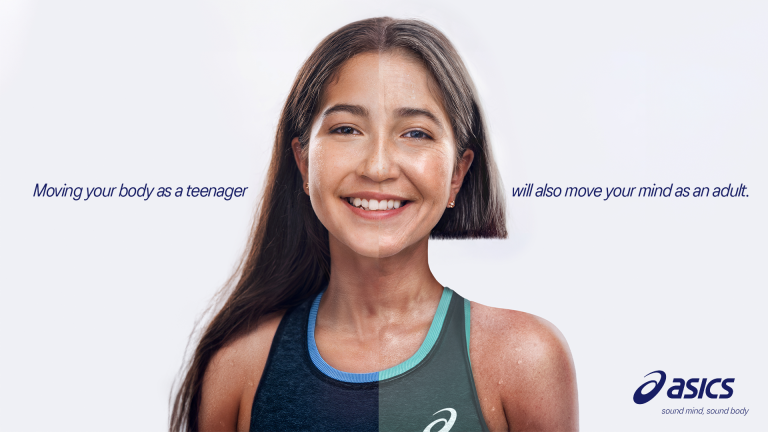ASICS has released the findings of its second Global State of Mind Study, which highlights a strong connection between physical activity in teenage years and improved mental wellbeing in adulthood. The study, which surveyed over 26,000 people across 22 countries, reveals that maintaining an active lifestyle during adolescence significantly enhances mental health later in life.
The research underscores that individuals who engage in regular exercise during their teenage years tend to have better mental health outcomes as adults. The study found that those who remained active between the ages of 15 and 17 report higher State of Mind scores—an index measuring mental wellbeing—compared to those who were less active during these critical years. Specifically, individuals who were active during ages 15-17 have an average State of Mind score of 64/100, whereas those who were not active during this period score 61/100.
The findings suggest that each additional year of exercise during adolescence is linked to higher mental wellbeing in adulthood. Conversely, those who ceased exercising before the age of 15 displayed the lowest activity levels and the poorest State of Mind scores, with a notable decline in mental health indicators such as focus, confidence, calmness, and composure.
The study also reveals a concerning trend of decreasing physical activity among younger generations. Only 19% of Gen Z—those aged 18-27—reported daily physical activity during their childhood, a significant drop compared to 57% of the Silent Generation (aged 78+). This decline in exercise habits among Gen Z is associated with lower State of Mind scores, averaging 62/100, compared to 68/100 for Baby Boomers and 70/100 for the Silent Generation.
Professor Brendon Stubbs, an expert in exercise and mental health at King’s College London, expressed concern over the decreasing levels of physical activity among younger people. He noted, “It is troubling to observe such a decline in activity levels at a critical age, especially since it is linked to lower mental wellbeing in adulthood.”
Tomoko Koda, Managing Executive Officer at ASICS, emphasised the importance of staying active for mental health. “ASICS was founded on the belief that sport and exercise benefit both the body and the mind,” she said. “Our study highlights the crucial impact of physical activity on mental health and reinforces our commitment to inspiring and supporting people to stay active for their overall wellbeing.”
ASICS’ study aims to raise awareness about the importance of physical activity during adolescence and its long-term benefits for mental health. For more information, visit ASICS State of Mind Study 2024.



